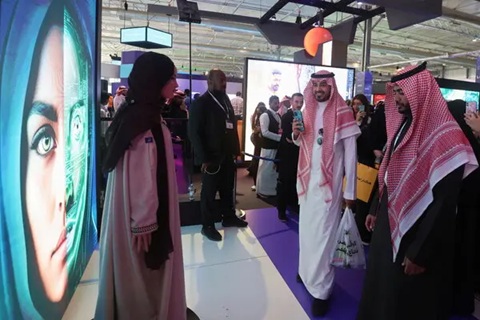Abu Dhabi-based security company BOLD Technologies, a subsidiary of BOLD Holding, and My Aion partnered to develop AION SENTIA Cognitive City, a next-generation AI platform designed to manage and optimize complex urban systems. The initiative, structured under a $2.5 billion Build-Operate-Transfer (BOT) model, will leverage MAIA, My Aion Inc.’s proprietary AI core engine, to integrate and support key sectors such as mobility, energy, education, healthcare, and digital services.
Currently under active development, the platform aims to deliver scalable smart infrastructure solutions globally, beginning with deployment in the UAE.
To mark the collaboration, BOLD Technologies and My Aion Inc. hosted a launch event, at the Emirates Palace Hotel in Abu Dhabi, attended by over 100 prominent business and technology leaders.
The guest list included representatives from leading institutions and global enterprises such as Sequoia Capital, Adnoc, G42, Leonardo, Amazon, TikTok, Fincantieri, Stellantis, the Mexican Ambassador, the Italian Embassy in the UAE, Abu Dhabi Capital Group, US Capital Group, AV Investor SA, Horizon Capital, and Netmore, as well as strategic technology players including Negg, Sitep Italia, Techera Watergy, and Motuse.
Representative of the private office of Bold Holding Chairman were also in attendance, along with senior representatives from Abu Dhabi’s government and public institutions, further underscoring the initiative’s strategic alignment with national innovation and development agendas.
The event introduced the vision and framework of AION SENTIA, showcasing its expected applications and how it will use advanced AI, sensor networks, and data analytics to support intelligent urban operations.
Abu Dhabi has been selected as the global headquarters for the initiative due to its progressive regulatory environment, robust cybersecurity standards, and well-established digital ecosystem. The move aligns with the UAE’s digital transformation strategy and positions the platform for international adoption.
“This initiative will support job creation for UAE nationals, foster local innovation, and contribute meaningfully to the national AI ecosystem,” remarked Thani Al Thani Al Falasi, the CEO of BOLD Technologies.
“We’re excited to work alongside My Aion Inc. to bring this ambitious vision to life,” he stated.
My Aion CEO Daniele Marinelli said: “Relocating our global operations to Abu Dhabi marks a new chapter for our team. The UAE offers the infrastructure and institutional support needed to scale responsibly and strategically.”
The partnership also includes plans to collaborate with UAE universities to launch training and upskilling programmes, further supporting the development of the national workforce in AI and digital technologies.
Founded in March 2023, BOLD Technologies leads digital transformation initiatives across the region and is one of eight subsidiaries under BOLD Holding, which operates in sectors including AI, energy, construction, oil & gas, and trading.
My Aion Inc., the developer of the AION SENTIA platform, is part of a group established in 2020 and maintains a presence in the US, UK, Italy, Latvia, and Monaco.
As part of this collaboration, all 63 employees and global operations will be consolidated in Abu Dhabi, a strategic relocation reinforcing the UAE’s position as a global hub for smart technology.


















